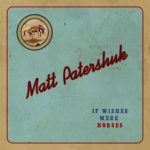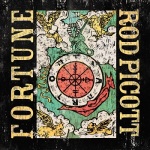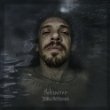 “Twang”; simple, it does what it says on the tin. OK, front cover, but you know what I mean and, actually, it does quite a lot more than it says on the tin. The twang is certainly present, but there’s a lot more to this album than Dick Dale influences. “Twang” is much more than surf or surf-punk. James Oliver pulls in many more guitar influences including Elmore James, Chuck Berry, Link Wray, Mick Green, Wilko Johnson and George Thorogood. And that’s before we even mention the legendary Dave Edmunds, whose collaborator Paul Riley mixed “Twang”. If you want another Welsh guitar connection, James is from Blackwood, home of the Manic Street Preachers – all part of the service.
“Twang”; simple, it does what it says on the tin. OK, front cover, but you know what I mean and, actually, it does quite a lot more than it says on the tin. The twang is certainly present, but there’s a lot more to this album than Dick Dale influences. “Twang” is much more than surf or surf-punk. James Oliver pulls in many more guitar influences including Elmore James, Chuck Berry, Link Wray, Mick Green, Wilko Johnson and George Thorogood. And that’s before we even mention the legendary Dave Edmunds, whose collaborator Paul Riley mixed “Twang”. If you want another Welsh guitar connection, James is from Blackwood, home of the Manic Street Preachers – all part of the service.
The album’s opener, “American Cars”, is a humorous swipe at the role of the car in rock ‘n’ roll music and the conspicuous absence of the American models in the Welsh Valleys, in a similar vein to Billy Bragg’s “A13, Trunk Road to the Sea”, but with more guitar; loads more guitar and plenty of piano as well. It sets the scene for the album; the musicianship is cracking, it’s one hundred miles per hour and there’s a lot of humour running through it.
Did someone mention Link Wray? The instrumental, “The Missing Link” is the surf equivalent of Stevie Ray Vaughan’s version of “Little Wing” as James runs through the various techniques of surf guitar, demonstrating his complete mastery of the genre (and more besides); and just like SRV’s piece, it’s a masterclass.
There are a couple of Big Joe Turner covers, “TV Mama” and “Honey Hush”, where James pulls in a few other references as well; “TV Mama” hints at Dave Edmunds’ 1970 No. 1 cover of the Dave Bartholomew classic “I Hear You Knocking”, while “Honey Hush” hints at a Phil Spector production, which Dave Edmunds also emulated for a while in the early seventies.
The James Oliver Band is much more than a simplistic tribute to sixties surf music. The stylings are complex; there are multiple tempo and rhythm changes throughout, particularly on “The Missing Link” and “Clean House” and the album’s closer, the Dick Dale classic “Misirlou” winds down with a bottom E string being gradually de-tensioned as the tune winds to a close. These are all examples of a musician with technical expertise and a clinical understanding of how a song is put together.
With the death of Cavan Grogan earlier this, maybe it’s time for James Oliver to make his breakthrough; after all, sixty-five years down the line all Chuck’s children are still out there playing his licks.
“Twang” is out now via The Last Music Company (2REV101).
Here’s a little video clip for you as well:
 Well, 2019 is certainly going out with a bang. In a period that’s normally characterised by back catalogue compilations and TV stars covering standards, the roots and Americana scene is still alive and kicking, particularly on Steve Dawson’s Black Hen label. “If Wishes Were Horses” is Alberta-based Matt Patershuk’s fourth album and it’s a very fine piece of work indeed. At first glance it appears to weigh in as a bit of a heavyweight with fifteen tracks, but it features four short instrumental fragments with the same leitmotif (more about that later), giving the album a fairly standard twelve-song running time.
Well, 2019 is certainly going out with a bang. In a period that’s normally characterised by back catalogue compilations and TV stars covering standards, the roots and Americana scene is still alive and kicking, particularly on Steve Dawson’s Black Hen label. “If Wishes Were Horses” is Alberta-based Matt Patershuk’s fourth album and it’s a very fine piece of work indeed. At first glance it appears to weigh in as a bit of a heavyweight with fifteen tracks, but it features four short instrumental fragments with the same leitmotif (more about that later), giving the album a fairly standard twelve-song running time.
Matt’s songs tend to simplicity on the surface, while tapping into universal truths about life, love, work and loss, but he likes to look at things through a different lens, lyrically and musically, creating a patchwork quality to the album, which is knitted together by the four short instrumental fragments (titled “Horses” and representing wishes). Each of these fragments weaves a different arrangement around a common melody; all are atmospheric with a cinematic quality using a variety of instruments and textures to create the links pulling the album together. “Horse 1 (For Bravery and Good Fortune)” is an interesting mix of Dick Dale and Ennio Morricone topped off with some very Sixties-sounding organ lines; the other wishes are equally enigmatic.
The album is packed with intriguing and memorable songs across a range of styles from old country to sweaty blues and it’s difficult to pick favourites, but let’s give it a try. The two songs telling stories of Ernest Tubb and Albert King (“Ernest Tubb had Fuzzy Slippers” and “Velvet Bulldozer”) are beautifully-drawn evocations of different stages in the musician’s journey. “Alberta Waltz” highlights the contrast between what people do to live and how they escape from it – ‘Dancing is for dreamers and lovers and fools’, while “Circus” describes a world where the everyday routine is grotesque and fantastical, but people still fall in love and get married. And let’s not forget “Let’s Give This Bottle A Black Eye”, which could only ever be a country song in the Merle Haggard vein.
“If Wishes Were Horses” is a satisfying complete album, featuring a great bunch of songs, superb arrangements and a voice that works perfectly across a range from slow country ballads to greasy Southern Blues. Matt Patershuk deserves to be much more widely known.
The album is released in the UK on Friday November 29th on Black Hen Music (BHMCD0090). In the meantime have a quick look at these videos:
 I think we need to introduce a new way of evaluating Country and Americana albums. The five star system’s all very well but I think we need another measure. I’m thinking of something like the Kimbrough Count; if Will Kimbrough plays on the album then it’s worth listening to. It certainly worked last year with his appearances on albums by Dean Owens and Sam Lewis, and he shows up again here on Rod Picott’s seventh album “Fortune”, but this is a very different proposition to the albums by either of those artists.
I think we need to introduce a new way of evaluating Country and Americana albums. The five star system’s all very well but I think we need another measure. I’m thinking of something like the Kimbrough Count; if Will Kimbrough plays on the album then it’s worth listening to. It certainly worked last year with his appearances on albums by Dean Owens and Sam Lewis, and he shows up again here on Rod Picott’s seventh album “Fortune”, but this is a very different proposition to the albums by either of those artists.
Rod Picott’s songs are intensely personal, zooming in on the lives of ordinary people (Rod included) and everyday events, and delivered in a gruff baritone that often sounds on the point of cracking, but never actually does. More often than not, he performs with just his own acoustic guitar for backing, but, on “Fortune”, he’s added a smattering of musicians including Will Kimbrough and Neilson Hubbard to create a sound that’s still sparse, stark and sometimes downright menacing and intimidating. It’s still a fairly minimal soundscape but it reinforces the powerful lyrics which are poetic but never overblown.
“Uncle John” is slightly untypical in that it deals mainly with family and society rather than personal matters, but the instrumentation is unsettling with detuned guitar, clipped notes, harmonics, heavy reverb and a sound somewhere between Dick Dale and Link Wray all underpinning a story of an outsider woodsman who pays the ultimate price for stepping outside society. The two lines ‘Drinks his beer from a can cause bottles break, Nine fingers from one mistake’ paint a graphic and economic picture of the lifestyle and its dangers, while the closing lines (along with the chorus) imply his death without actually making the statement.
The themes of the songs are mainly personal (although “Jeremiah” is written from the point of view of a woman hearing about the death of a soldier she loved), but it’s the moments when Rod steps back from dealing with raw emotion to singing about more general themes, particularly “Uncle John” and the moodily magnificent “Drunken Barber’s Hand” that the album really starts to soar. The album’s full of powerful, gut-wrenching songs that evoke the spirit of heartland America with imagery and playing that are equally powerful and simple. 2016’s looking good already.
“Fortune” is released in the UK on Friday January 15th on Welding Rod Records.
 If you happen to have dipped a toe in the pool that is the British blues scene recently, you may have noticed that there are some very snappy critters swimming there waiting for the unwary. As with any scene that’s out of the mainstream, it’s inevitable that cliques develop, a fact that isn’t helped by too many performers chasing too few fans. It’s a classic supply and demand situation. As well as reducing the cash available to performers, it creates a situation where greed and selfishness seem to be excusable and some of those critters in that pool are piranhas. You can hear accusations of nepotism, award-rigging and other bits of nastiness, but the worst thing you can do is to question someone’s authenticity, which is ironic given that the players who are currently really successful are imitating the players from the 60s and 70s who imitated the original blues artists from the 30s and 40s.
If you happen to have dipped a toe in the pool that is the British blues scene recently, you may have noticed that there are some very snappy critters swimming there waiting for the unwary. As with any scene that’s out of the mainstream, it’s inevitable that cliques develop, a fact that isn’t helped by too many performers chasing too few fans. It’s a classic supply and demand situation. As well as reducing the cash available to performers, it creates a situation where greed and selfishness seem to be excusable and some of those critters in that pool are piranhas. You can hear accusations of nepotism, award-rigging and other bits of nastiness, but the worst thing you can do is to question someone’s authenticity, which is ironic given that the players who are currently really successful are imitating the players from the 60s and 70s who imitated the original blues artists from the 30s and 40s.
Ok, so here’s where that was all heading; I’ve been listening to an album by John Fairhurst. The album’s called “Saltwater” and it’s not full of tasteful imitations of Clapton playing “Further on Up the Road” or “Key to the Highway”; the inspiration here comes from Howlin’ Wolf, Muddy Waters, Little Walter and many others. The smoothness has been filtered out and this goes back to the raw earthiness of early country blues and Chicago electric blues.
John Fairhurst is originally from Wigan; he now lives in Bristol and recorded this album in Bristol and London with the help of Toby Murray (drums), Joe Strouzer (harmonica and vocals), Emma Divine (vocals), Tim Loudon (bass), Luke Barter (bass), Jago Whitehead (drums & percussion), Phil Jewson (piano), Saul Wodak (guitar effects) and Alex Beitzke (bass). I have a little confession to make about the album; on the first listen, I was halfway through before I actually started to get it (during the guitar solo on “I’m Coming Home”, actually). I blame it on the previous review I did, which was a very cleanly-produced singer-songwriter and it took a while to move from that to the over-driven guitar, wailing harmonica and Tom-Waits-dukes-it-out-with-Mark-Lanegan vocals. So let’s go back to the start.
The two opening songs, “Breakdown” and “Who You Fooling” get things off to a raucous start with plenty of amped-up slide and harmonica to get things rolling before the album’s only cover, the Mississippi John Hurt song “Pay Day”, which is much gentler, using the old country blues devices of repeated lines and call and response with the help of the Dean Street Choir. There’s even a sneaky little Eric Clapton reference at the end. “More More More” and “Time Goes By” are rooted in the rural, country blues tradition, the first having a UK skiffle feel while “Time Goes By” could be Tom Waits with the badly-tuned pub piano accompaniment.
You couldn’t really describe “I’m Coming Home” as blues; it’s a mutant Jimi Hendrix/Neil Young hybrid with “Voodoo Chile”-style riff and fill playing in the verses and a Shakey-style solo from the “American Stars and Bars” era. It’s the first of the album’s epic pieces. “No Shelter” is another elemental piece built around a simple (but loud) guitar riff and a reasonably good choice for the album’s first single while “Black Cat” is pure Muddy Waters; it’s a straight-ahead twelve-bar with belting harmonica and that always sounds good to me. So, more of the same to finish the album off?
No way; the penultimate song, written by the whole band, is “Dance in the Pines”, a mad surf-punk piece which splices DNA from The Cramps, Dick Dale and The Ventures. It’s off the wall and it’s brilliant. The album’s closer and title track, “Saltwater” is the magnum opus and absolutely has to be the last track; it wouldn’t be as effective anywhere else on the album. The song, which is a restyling of the Robert Johnson “Crossroads” story substituting the ocean for Clarksdale, has the singer refusing to shake hands with The Devil. It’s an epic which starts with acoustic guitar and vocal (slipping into a Wigan accent) which builds through a rural bluegrass-tinged to a kitchen-sink finale featuring Emma Divine delivering a vocal which easily equals Clare Torry’s famous performance on “Great Gig in the Sky”. And it’s the last track on the album because you can’t follow that; job done.
If you’re sick of hearing second and third generation blues revivalists recycling smooth guitar licks and bland vocals (no, I’m not naming names) then this could be just the album for you; don’t file under easy listening.
Out now (JF005).
 229, The Venue? It’s easy to get to because it’s part of the International Students’ House complex just across the street from Great Portland Street tube station. Venue 2 is a basement room with a stage at one end and a bar on one side. The acoustics are reasonable so it’s not a bad place to watch up-and-coming bands. My mission tonight, if I choose to accept it, is to have a look at London alt-indie (let’s leave the description at that for the moment) band, Vera Lynch. In keeping with their highly eclectic sound, the band has a multinational line-up with members from the UK, USA, Hungary and the Far East. They are: Sándor Sztankovics (drums), Ted Barker (bass), Keisuke Nishikawa (guitar), Brian Pistolesi (guitar) and Guy Harries (vocals).
229, The Venue? It’s easy to get to because it’s part of the International Students’ House complex just across the street from Great Portland Street tube station. Venue 2 is a basement room with a stage at one end and a bar on one side. The acoustics are reasonable so it’s not a bad place to watch up-and-coming bands. My mission tonight, if I choose to accept it, is to have a look at London alt-indie (let’s leave the description at that for the moment) band, Vera Lynch. In keeping with their highly eclectic sound, the band has a multinational line-up with members from the UK, USA, Hungary and the Far East. They are: Sándor Sztankovics (drums), Ted Barker (bass), Keisuke Nishikawa (guitar), Brian Pistolesi (guitar) and Guy Harries (vocals).
If you could splice the musical DNA of Dick Dale, Ennio Morricone and English ‘80s post-punk, you might come close to defining the Vera Lynch sound; you might even want to throw a bit of early Bowie and INXS in there. The band has an EP out at the moment, “Evil Cowboy Surfer Songs” (to be reviewed here soon), and you might expect to hear all four songs from the EP as part of a short live set, but it doesn’t work out that way because, well, this is Vera Lynch. In fact, only two songs from the EP, “Fire” and “”Evil Cowboy Surfer Song”, make the live set. The band opens with “Dog in the Club” and then “Lost Property”, “Horror Doctor”, “Child of Jago” and the anthemic closer, “The End of the World”, follow the two songs from the EP.
It’s quite a spectacle; the band look great and they play together as a very tight unit, moving through varying musical moods with style and panache and providing a bedrock for the lead vocals. Guy Harries is mesmeric and messianic, a twenty-first century Ian Curtis (but with a sense of rhythm) who transfixes the audience with his scary, stary-eyed delivery and a voice that might just have a hint of Freddie Mercury in there as well. Musically and visually, they are impossible to ignore and you really should make the effort to go out and see them.
If you want to see Vera Lynch live in the next few weeks, you can see them at The Dolphin in Hackney on Friday February 28 or Underbelly in Hoxton on Friday April 18.


